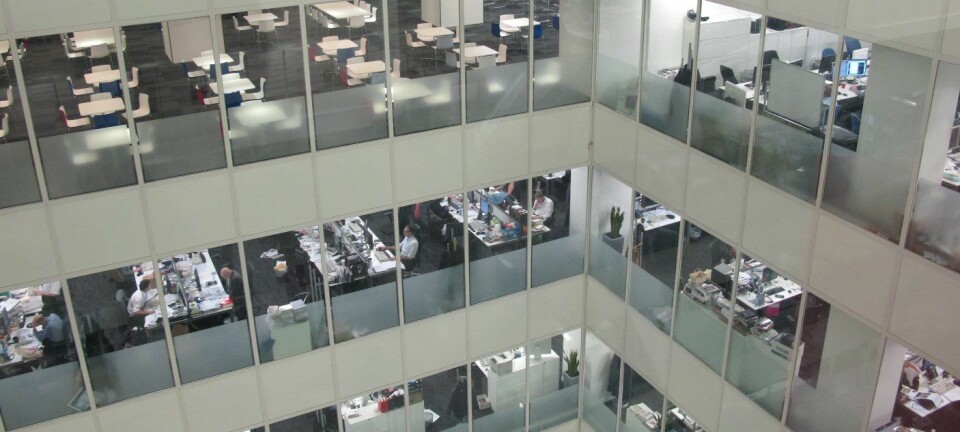
Why new technology makes us work more
New technology has yet to make the commute to work superfluous, but it has allowed jobs to encroach on our leisure time.
Denne artikkelen er over ti år gammel og kan inneholde utdatert informasjon.
Why hasn’t new technology shortened working hours and moved jobs out of offices and into our homes? Despite how easy it has become to work from home, many of us continue to spend hours in traffic to sit in front of a computer, just like the one we have a few strides from bed.
Not that we don’t work from home – we work more now during off-hours, without any pay. Swedish researchers have glimpsed part of the reason.
In a study they have found that the shackles that tie us to the office are strong social norms.
“The main reason lies in the formidable social norms which stress the importance of being on the premises,” says Kristina Trygg, a researcher in cultural geography at Stockholm University.
Sharing ideas, avoiding misunderstandings
It’s not considered working when you are absent from the office. Social interaction and cooperation with colleagues under the same roof is viewed as essential too. The Swedish study looked at ways employees and management in various knowledge-intensive trades evaluate work in a time-space context.
Face-to-face meetings are especially important when establishing and nurturing relationships to colleagues and customers, assert employees and their bosses in jobs in the fields of management, PR and communications, government and research.
Key reasons given for a physical presence at the place of work include the opportunity to exchange ideas and avert the misunderstandings which could crop up in our physical absence.
Wish to be updated
Despite that, the advances in ICT have reinforced expectations that we stay available after working hours. This has ripped away many of the former boundaries between work and leisure time. As a result we work more than before, often without any remunerative compensation.
Whips are not necessarily being cracked. The office workers who participated in the study often choose to be online and available to customers, colleagues and employers after working hours.
They find it hard to draw the line between work and leisure time because they are honestly interested in their jobs. When out of office they like to stay updated and have some control over developments.
“There is also the matter of expectations from workmates, bosses and customers that they remain accessible outside of working hours. This involves perceived expectations as well as real expectations,” says Trygg.
-------------
Read the Norwegian version of this article at forskning.no
Translated by: Glenn Ostling


































